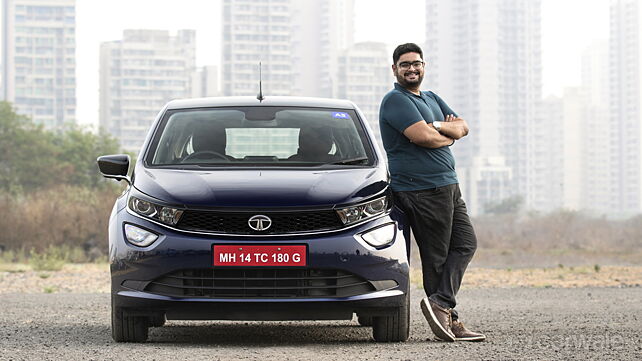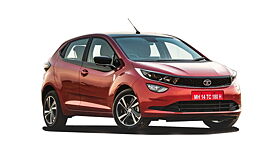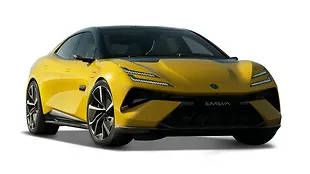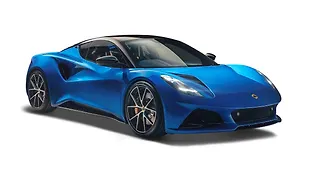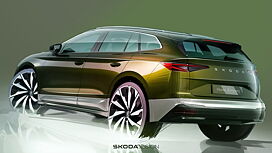Why would I buy one?
- Smooth-shifting gearbox when driven sedately
- Rear seat comfort
- Good value for money
Why would I avoid it?
- Weak low-end torque
- Engine is more vocal at mid to high rpms
- Misses out on certain feel-good features
Summary

The premium hatchback segment has not lost steam even as SUVs continue to contribute to a large chunk of sales in the Indian market. The Altroz DCA joins the market as a rival to the likes of the Hyundai i20 DCT, Honda Jazz CVT, Maruti Suzuki Baleno AMT, and the Volkswagen Polo AT, more than two years after the model made its debut in India. The Altroz is finally here with an automatic transmission and this one is a technically advanced DCT unit. How does it perform? We find out.
Engine and Performance
6 / 10

The Tata Altroz DCA is powered by a 1.2-litre, three-cylinder, naturally aspirated petrol engine that produces 85bhp at 6,000rpm and 113Nm of torque at 3,300rpm. Apart from the new DCA unit, the model is also offered with a five-speed manual unit. Press the engine start-stop button and the Altroz DCA comes to life, with the three-cylinder engine, if you pay close attention, making its presence felt with mild vibrations at idle. The weak bottom-end is distinct, and one has to revv the engine well ahead of the 3,000rpm mark in order to get any momentum. The mid-range is strong, although with the increase in speed, there is a rise in the NVH levels too, and keeping the model in the higher range is something that we wouldn’t prefer.

A small dab on the throttle in between gears is all it takes to start building up the momentum, and the gear shifts are smooth even when in traffic, almost torque converter-like. One thing we must admit though is that if you are one of those folks who prefers to drive more enthusiastically or keep the engine constantly on the boil, you will quickly notice how it is the slow revving engine that holds back the drivetrain, and not the new gearbox.

The engine takes a fair bit to gain and lose revs, and hence the aid of a DCA unit doesn’t come to the rescue, even though the secondary clutch is ever ready for that action you command it to. That said, the shifting is smooth, and the manual mode gives you better control when you want that sporty feel. The Altroz DCA feels at home when you drive it in the mid-range, and that is how it is intended to be used, by the audience that will be commuting in the concrete jungles of the country.
Ride and Handling
7 / 10

There are no mechanical changes to the Altroz DCA in terms of ride and handling compared to its manual counterpart. The overall ride quality is slightly on the stiffer side, and hence when at high speeds it feels very planted and comfortable. It is at lower speeds that the uneven roads and undulations make their presence duly felt. The steering is fairly light too and will be a boon in bumper-to-bumper traffic and tight parking conditions where the Altroz DCA is most likely to be used.

Talking about the tweaks for the Indian market, the DCA variant of the Altroz gets shift-by-wire technology, auto park lock function, and neat driver-assist features such as the alignment of the steering wheel that is displayed on the MID. This feature is especially useful for folks who have multiple users for the same car, where one of the drivers tends to forget to turn the wheels once parked.
Interior Space and Quality
7 / 10

With the introduction of the Tata Altroz DCA, the model is now available with a new Opera Blue paintjob. Apart from this, the only other change is the tiny DCA badging at the rear, which is almost a blink and miss if you ask us. Space on the inside is reasonably good, and we had ample legroom at the back even after setting the front seats to our ideal positions. Convenience isn’t compromised either, and the front row gets an adjustable arm-rest, while the second row gets a foldable unit. Also on offer are AC vents for the latter, which your family will be thankful for in this terrible heat that we’re already facing, with just the onset of summer.

In terms of quality, there are a few inconsistent panel gaps around the car, although the interior feels tight. If we had to nitpick on something, it would be the volume control of the infotainment system which sets to a particular point upon starting the car, irrespective of the setting that it was in before shutting down the last time. This can certainly become annoying after one point in time. The brushed aluminium finish for the door levers makes it stand apart and is a tasteful addition in our opinion.
Features and Equipment
6.5 / 10

The Altroz DCA we tested was the top-of-the-line XZA+ version and comes equipped with all the bells and whistles that Tata has to offer with this car. That said, the Altroz DCA, compared to the i-turbo variant, also misses out on drive modes, and the button for the same makes for the central locking button, right behind the gear lever. Another point to be noted is that the Altroz we tested upon its launch back in 2020 had physical controls and buttons right below the infotainment system, which has now been given a miss and replaced by the Altroz lettering.

The Altroz is the safest car when compared to the competition, courtesy of the five-star safety rating in the Global NCAP crash test. The model is equipped with a comprehensive list of safety features such as dual front airbags, ABS with EBD, rear parking sensors, a speed alert system, brake sway control, impact-sensing auto door unlock function, a seat belt reminder system, and corner stability control.
Conclusion
7 / 10

While an automatic transmission in the Altroz was long overdue, it does have its own set of hits and misses. The Tata Altroz DCA commands a premium of Rs 1.07 lakh (ex-showroom) over its manual counterparts, variant to variant. While this combination is definitely acceptable, it would have been ideal to pair the DCA unit to the iTurbo (turbo-petrol) motor, something we expect the brand to do in the near future.
Should you get down to booking the 1.2 NA DCA variant right away or wait for the iTurbo DCA variant? If it is a majority of city commutes and the rare occasion of enthusiastic driving, we would recommend the former, else one can surely wait for the latter.
Pictures by Kaustubh Gandhi

